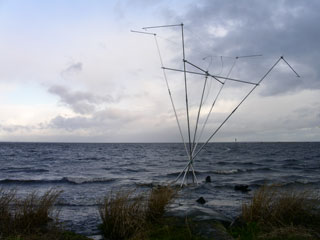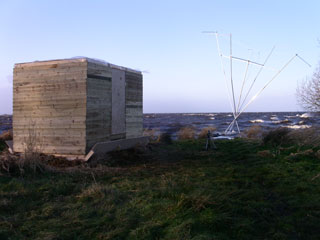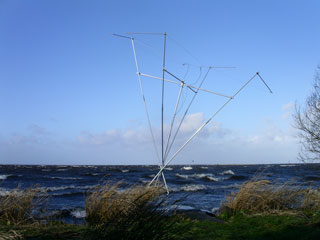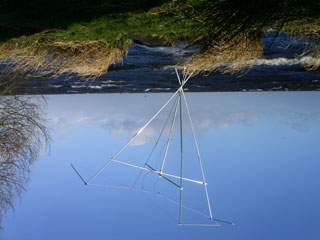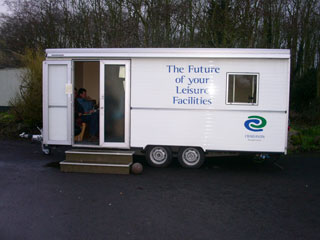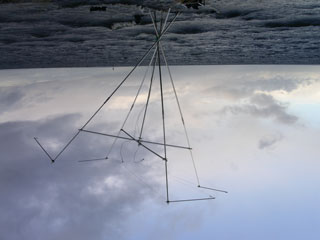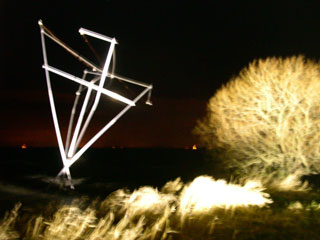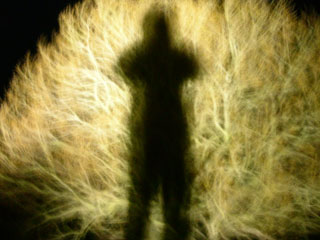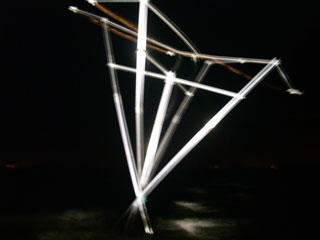February 12, 2005
we're not in kansas anymore
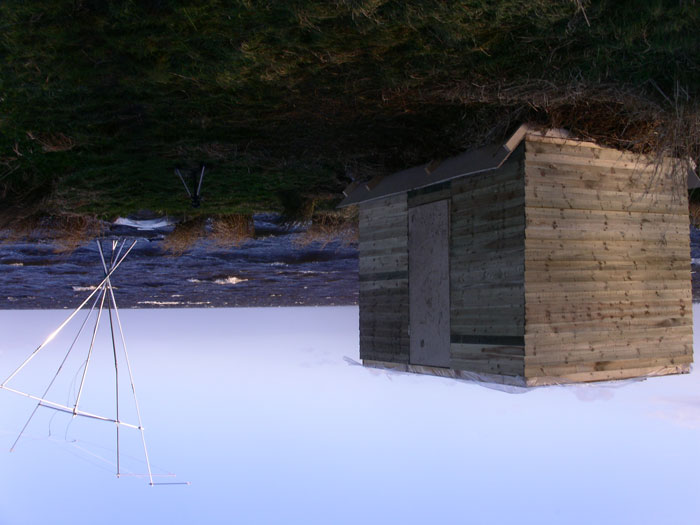
In the night the wind picked up. Gales were forecast and I woke several times thinking of the mast, listening to the wind rattling my windows.
When we arrived in the morning it was lying on its side, the lough now blown by the rising wind, a rougher body of water.
Daniel, Paul and I managed to push it back onto its base and floated it back into shallower water where we anchored it, building cairn like piles of rocks at each corner, until the wind blew and flexed the mast but the base stayed sound on the lough bed.
During the morning the wind rose more and blew squalls of horizontal rain, first from the west, then shifting to the north west and ominously towards the north. Installing the equipment in the shed was precarious, lining areas of wall with plastic to try and keep the electronics dry, moving equipment into the corners away from the leaks.
I hung a mic in the lough, cable tied to the base of the mast, set up the radio telescope receiver and plugged them into a mixer along with Pauls laptop full of stories. We cut a hole for the camera, the camera obscura "lens", to look out of and pointed the projector at the opposite wall.
The rising storm shook the shed. The upside down structure became more like Dorothys house in the twister, a hillbilly space craft, as the wind rattled the walls and strained the joints, blew through and round and under, looking for a chance to lift it, to get inside and tear it apart.
Through the afternoon people came and went, took shelter in the shed, watched the inverted pinholed world, listened to the stories of the lough, to the invisible worlds beneath its surface and streaming in from space.
In the night, illuminating the mast, it became two dimensional, a geometric diagram, a constructivist animation, bending and bowing in the wind. The horizontal rain was rendered as electron ghost tracks in a cloud chamber, tracing scratched lines across the night vision screen inside the shed. A floor board popped up as the shed strained and pulled and twisted.
The mast and the shed became part of the same vessel, connected now not only by their optical, conceptual and functional relationship, but by their being two halves of a whole separated in the storm, mast and cabin.
Like sailors fighting to keep a boat afloat in a gale, on wild seas, we bailed and braced the shed for hours. At 2.30 am, while listening to a radio storm from Jupiter, the terrestrial storm outside threatened to turn the shed over. With rain spilling through the walls we cleared out the equipment, jammed the door shut behind us and abandoned ship.
